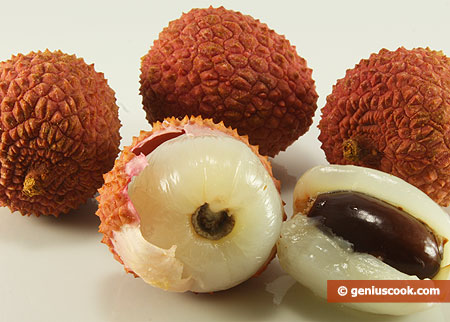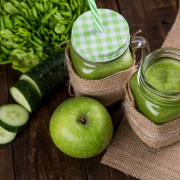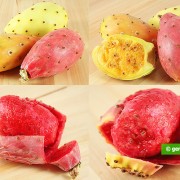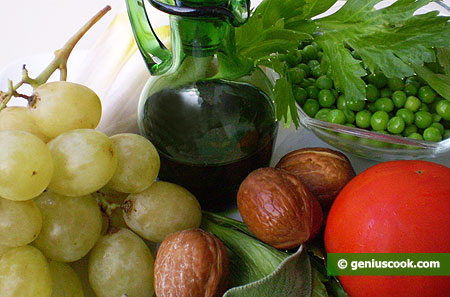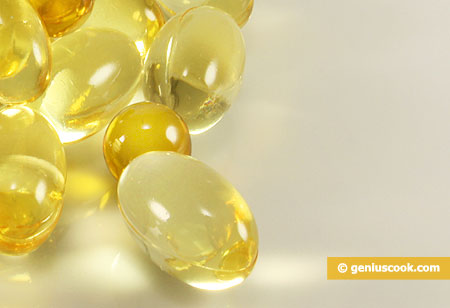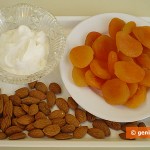Litchi’s Salubrious Qualities
Litchi is an exotic fruit; its next of kin is rambutan. Litchi originates from the subtropical areas of China. Litchi is also known as the Chinese grapes or the Chinese plum. Litchi fruit looks like an uncanny toy since it is covered with hard pimpled peel of pink or reddish hue. The fruit is peeled easily and light, juicy, sweet-and-sour translucent pulp is exposed, resembling grapes in its texture. Litchi has a delicate flavor not unlike that of tea-rose, it invokes the mysterious charm of the tropics.
Litchi’s main asset is nicotinic acid, it helps clean the blood of cholesterol, widens the blood vessels, it is efficacious in preventing atherosclerosis.
Litchi also alleviates the diseases of liver, pancreas, gastritis and diabetes, since nicotinic acid regulates many oxidation-reduction reactions in the body.
Besides nicotinic acid litchi contains a unique mineral complex of potassium, magnesium, calcium in an ideal mixture. This complex goes for strengthening the heart. litchi also contains proteins, B vitamins and ascorbic acid.
Litchi is eaten fresh; it is used for making different desserts, ice-cream, syrup. Its pulp is added into sauces, liquors, tea, cocktails, wine aperitifs.
Note: If you need more nicotinic acid it is better to eat products that are rich in it than to take vitamin additives. And that’s where litchi comes in for you can eat as many litchi fruits as you want. The litchi have only 60 cal/0.2 lb.

